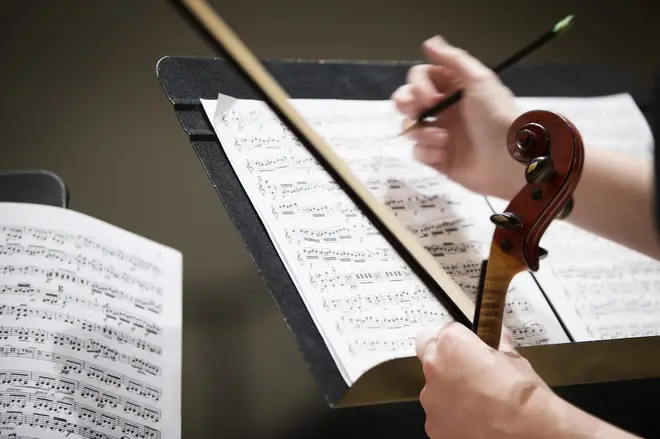‘Funding crisis’ poses serious threat to A-level music and languages
20 August 2018, 14:15 | Updated: 20 August 2018, 14:18

A-level music, French and German are in danger of being removed from state schools and colleges in England because of funding cuts, the Association of School and College Leaders (ASCL) has warned.
A survey of 420 state-sector school and college leaders, released the day before A-level results day, shows 69 per cent have been forced to cut back on lesson time, staff and facilities in A-level subjects over the past two years.
The subjects cited as being worst affected by cuts were music (39 per cent), French (32 per cent), design and technology (31 per cent), drama (28 per cent) and German (26 per cent).
The number of entries for these subjects have already seen significant decline over the past five years. In 2017, just 3,422 students took A-level German in England. Music was taken by 5,610 and French by 8,539 pupils, while A-level drama and design and technology were taken by 10,751 and 10,657 students respectively.
Geoff Barton, General Secretary of the Association of School and College Leaders, said: “Subjects like A-level music, French and German are hanging on by their fingertips in the state sector because schools and colleges cannot afford to run courses with relatively small numbers of students on current funding levels. Their erosion will mean we have fewer musicians and linguists in the future, and this will have a long-term impact on related industries and on the number of teachers we are able to train in these disciplines.
“The immediate solution is for the government to stop treating the 16-18 sector like the poor relation of education and improve the level of funding as a matter of urgency. In the longer term we need to boost these subjects at GCSE where they are also under pressure.”

Of the respondents to the ASCL survey, 86 per cent (251) said funding pressures were responsible for the crisis.
And 54 per cent said the government’s decision to ‘decouple’ AS levels – meaning they no longer count towards A-levels – has seriously impacted many schools and colleges, with many now focusing on just three A-levels, rather than four.
One school leader responded to the survey, saying: “Funding pressures are relentless and have cut our syllabus to the bone. Education is being provided for pupils on the basis of whether it can be afforded not whether it is right for the child's needs.”
A second said: “If a course is not financially viable it cannot run. The moral imperative to provide the right course for the right student is a fight that is being lost to a funding crisis.”
The ASCL survey revealed the 16 to 18 education sector has been particularly badly hit by government spending decisions. Twenty-eight respondents said their sixth form was considering closure, with many saying they have been unable to sustain student numbers with current funding levels.
A Department for Education spokesperson said: “School funding will rise to a record £43.5 billion by 2020 – 50 per cent more in real terms per pupil than in 2000 – and we are protecting the base rate of funding for 16 to 19 year olds until 2020 to ensure every young person can access the education or training needed to go on to university, apprenticeships or work.
“We want young people to have access to a wide range of high-quality options at post-16. We are supporting schools through a new national centre of excellence in modern foreign languages and regional hubs to drive up standards in the teaching of languages. We are also investing £500 million in music and arts education programmes between 2016 and 2020 to give young people the opportunity to take part in a range of activities.”
In two unrelated recent reports by Arts Council England, it also emerged that a ‘class gap’ is holding young people back from the arts. Cost and lack of confidence were cited as two major reasons that young people didn’t engage with the arts, with the Arts Council saying “the majority of the answers received were related to anxiety, embarrassment and shyness.”


































